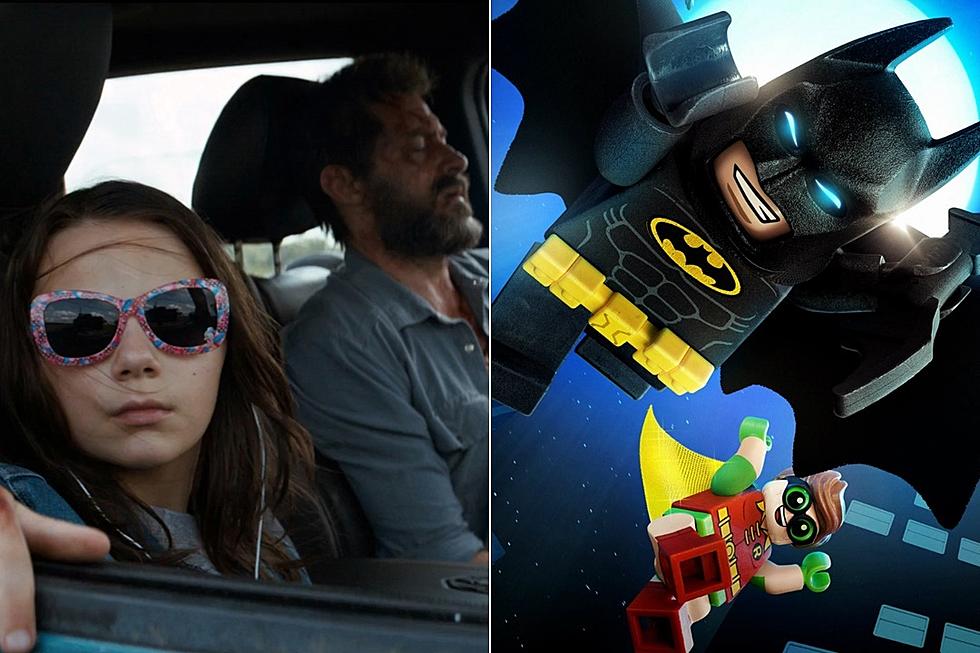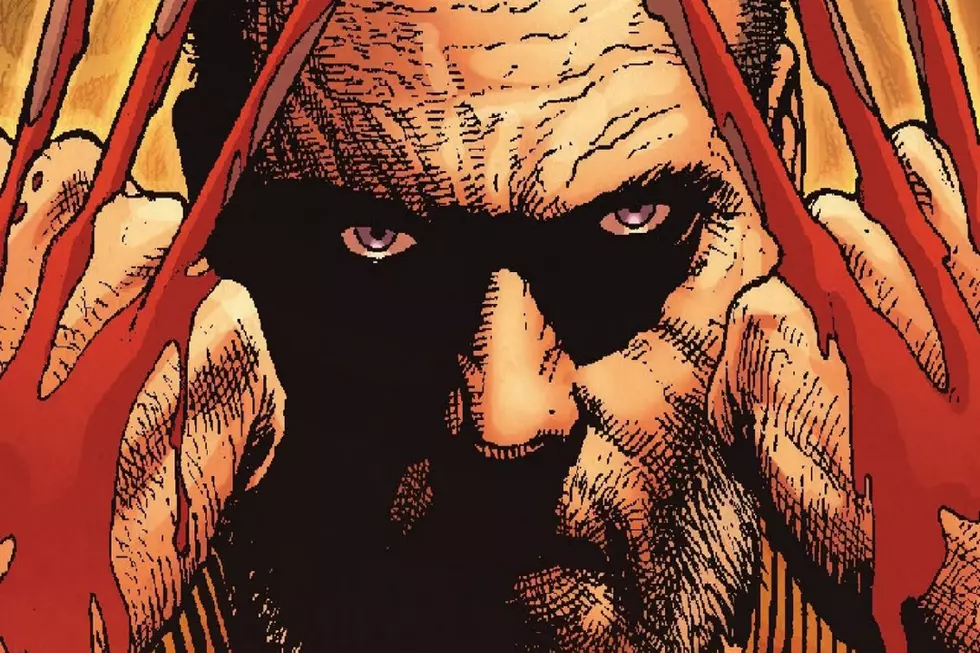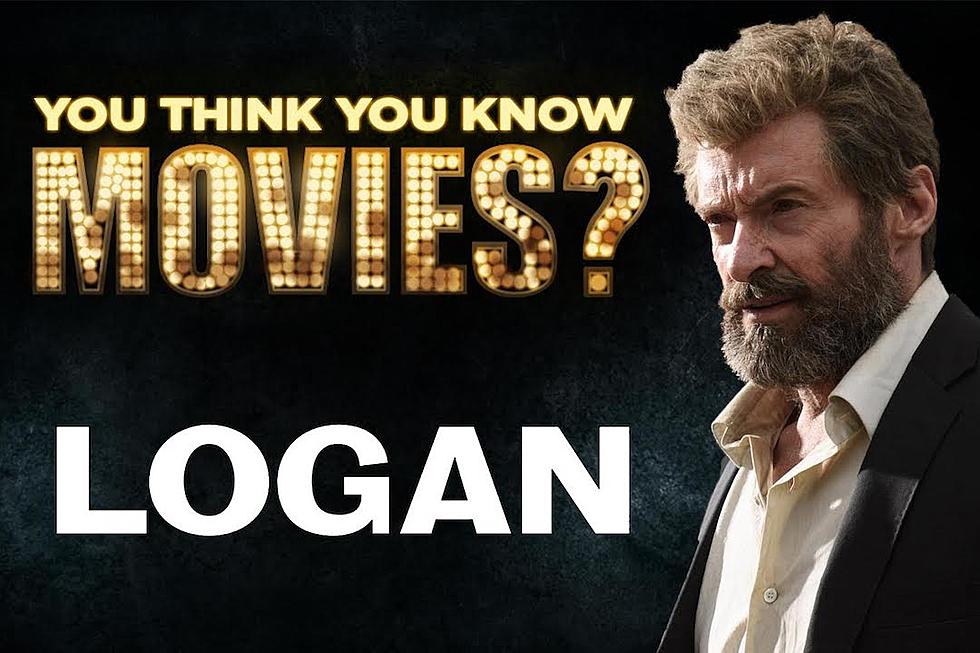
‘X-Men: Schism': Why You Should Be Reading the Big Cyclops vs. Wolverine Throwdown

As much as I love the X-Men, it's hard to get excited about a story where Wolverine and Cyclops fight each other. It's not just that it's been done before, but that over the past 30 years, it's been done so much that the readers accept their ongoing conflict as being just as much a regular part of the comic as the staples that hold it together. Sometimes it's better than others, but it's been a long time since it's been remarkable.
So when I started reading X-Men: Schism, the big event leading to the annual change in status quo for Marvel's Merry Mutants, it wasn't because I was interested in seeing a big Wolverine/Cyclops throwdown. It was because Jason Aaron has yet to write a comic book that I don't love. I figured if anyone could make this story interesting, it was him -- and not only did he do just that, he did it in a comic that's shaping up to be one of the best X-Men comics I've ever read. For a lot of readers my age, the conflict between Wolverine and Cyclops was defined by the way that it was presented in the '90s. In fact, whenever I think about those two characters, the first image that pops into my mind is that scene from the pilot of the 1992 X-Men animated series where Wolverine gets mad at Cyclops, calls him "soldier boy," and gets so mad over the death of a teammate that he cuts off the roof of his car in one of Saturday morning's most hilariously overwrought examples of melodrama.
For a lot of readers my age, the conflict between Wolverine and Cyclops was defined by the way that it was presented in the '90s. In fact, whenever I think about those two characters, the first image that pops into my mind is that scene from the pilot of the 1992 X-Men animated series where Wolverine gets mad at Cyclops, calls him "soldier boy," and gets so mad over the death of a teammate that he cuts off the roof of his car in one of Saturday morning's most hilariously overwrought examples of melodrama.
And that wasn't just simplifying it for the cartoon, either. By the time the franchise hit the height of its popularity that led to 1991's X-Men #1 being the best-selling comic book of all time, the strong character work that creators like Chris Claremont, John Byrne and Dave Cockrum had built around the two characters had led to a pretty simplistic conflict of clashing personalities and liking the same girl.
That's not to say it was a bad thing. It did, after all, create a generation of readers who loved those characters, but it always felt so reductive. The panel to the left defined that conflict for me ever since I read it back in 7th grade, and it shows just how simply it represented their conflict; and, at least for me when I was 9, how that conflict basically boiled down to "Wolverine is awesome and Cyclops is boring and sucks."
Again, it's not that it's never good. Grant Morrison had an interesting take on their relationship during his run, and Joss Whedon was able to put a nice spin on the conflict in Astonishing X-Men -- but a lot of the time, it's just sort of there. In Schism, however, Aaron and the artists he's working with take things to a level that I don't think I've ever seen. There's a depth to their relationship that other creators often overlook.

By building the conflict slowly over the course of the series, Aaron doesn't just add tension and drama to the inevitable conflict, he shows these two characters as exactly what they are: Two guys who have been through a lot together. In the first few issues, there's no melodramatic tooth-gritting or heavy-handed conflict -- it's actually the opposite.
There's a sense of, if not friendship, respect between Wolverine and Cyclops, and it makes perfect sense. These dudes have been working together for years. They've risked death for each other. They've buried friends (and un-buried almost as many). They may not get along all the time, but there's a history there that doesn't work if you just flat-out hate each other that comes from sharing a the same ideals. And in showing that relationship, Aaron makes the moment where it all breaks down feel far more important than it would be.
This isn't a story that would work as well as it does if Wolverine and Cyclops acted like they did in 1991, but it is a story that takes every bit of that history into account.

But what makes this comic so great isn't just how the conflict is depicted, but what it actually is. Wolverine and Cyclops have had their standard roles in comics for years, the same ones that I picked up on when I was getting that first look at the X-Men in fifth grade: Wolverine's the grim, badass loner who's willing to get the job done through brutal violence, and Cyclops is the repressed control freak who believes in the morality of his cause.
Those two things are both true, but in this story, Aaron recognizes that there's a lot more to the characters than just those broad strokes, and that the deeper complexities running under the surface give him a chance to put them on the sides of a conflict that may not be what the readers expect. Wolverine isn't just a vicious thug, he's also a guy who takes kids like Kitty Pryde and Jubilee under his wing to protect them, and teach them how to protect themselves. For all that he's a scary (for a Canadian) berserker samurai, he cares about people, especially kids.
And Cyclops is a guy who was recruited into a paramilitary organization when he was a teenager and spent his entire life dealing with people who were trying to kill his entire species.

Aaron, along with Carlos Pacheco, Alan Davis, Frank Cho and Daniel Acuna, has been expertly playing up those two ideas in a story that underscores Cyclops' ruthless pragmatism and a noble side of Wolverine that readers don't often get to see. The idea that he's perfectly comfortable doing what he does -- which I believe he's said once or twice is "not very nice" -- only as long as others are spared having to deal with it is expressed beautifully here. There's a nobility and sacrifice in Wolverine's character that doesn't come up when the stories are just reductive snikt-bub violence.

These aren't new ideas; Cyclops putting down the student uprising in Morrison and Quitely's "Riot at Xavier's" is one of my favorite moments in X-Men history, as is Wolverine's tender first meeting with Mariko Yashida by Claremont and Byrne. But they're put together in a way that's fresh and enjoyable, in a clash between them that feels like it matters.
And it's reflected even better in the enemies that they're facing while their own conflict builds. While a lot of the story has been taken up with the Sentinels -- the same robots that have been trying to murder the X-Men for their entire existence -- the real villains behind everything are an all-new Hellfire Club made of children:

I'd love these guys just for the hilarious, over-the-top glee that comes through when they're involved in the story, but it goes deeper than that. The idea of these characters serving to reflect exactly what Wolverine and Cyclops are fighting over, the fate of children, by showing what they might end up becoming. Creepy kids are a dime a dozen in fiction, but Aaron's work on a level that takes an old truth about the X-Men and turns it on its ear: If the X-Men, mutants, are our future, then what if a generation of heartless, vicious children are theirs?
It's a great conflict, and more than that, it's a great conflict for this book. I can't wait to see how it all ends, and I haven't been able to say that about an X-Men "event" in years.
Buy X-Men: Schism #1 on ComiXology now.
More From ComicsAlliance









